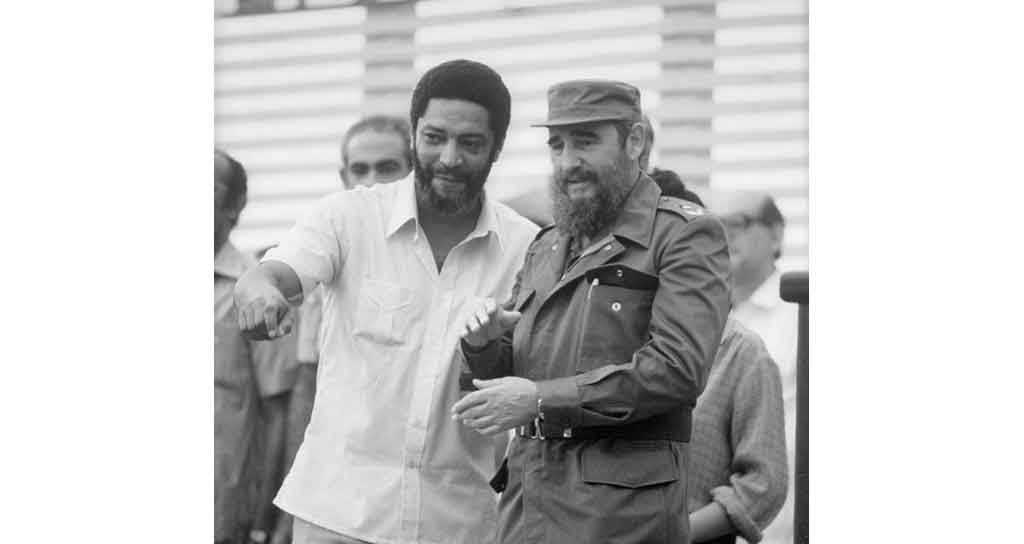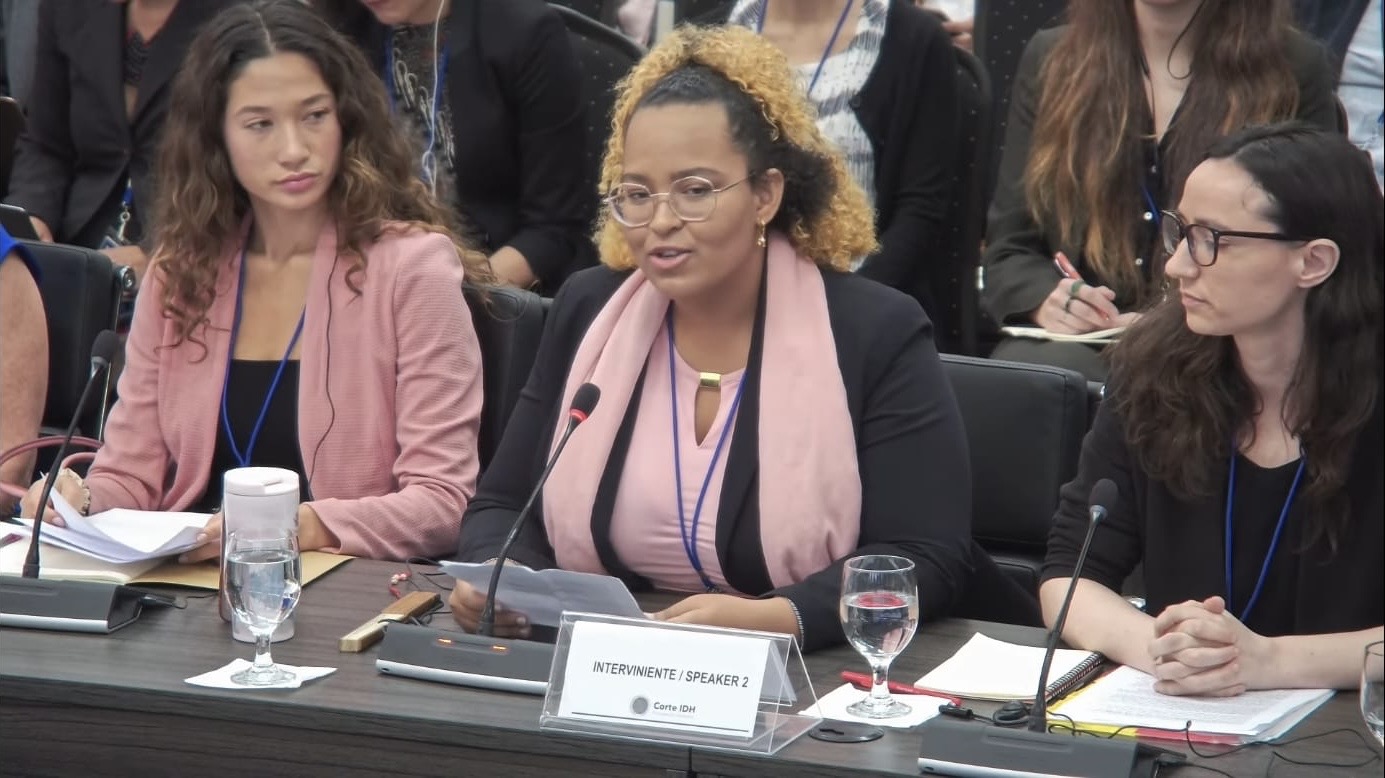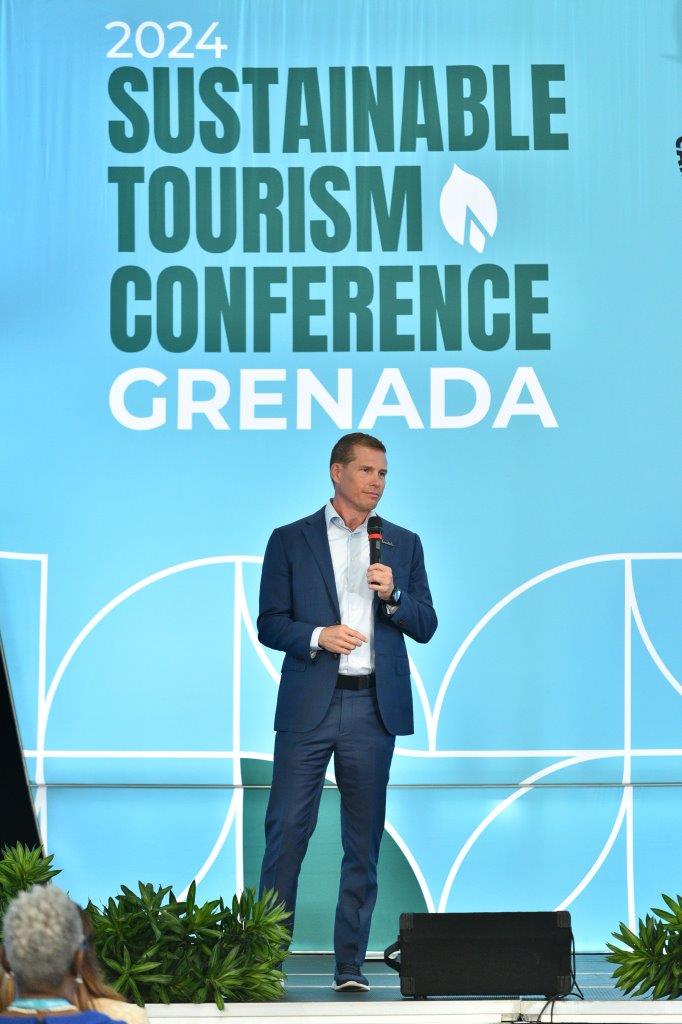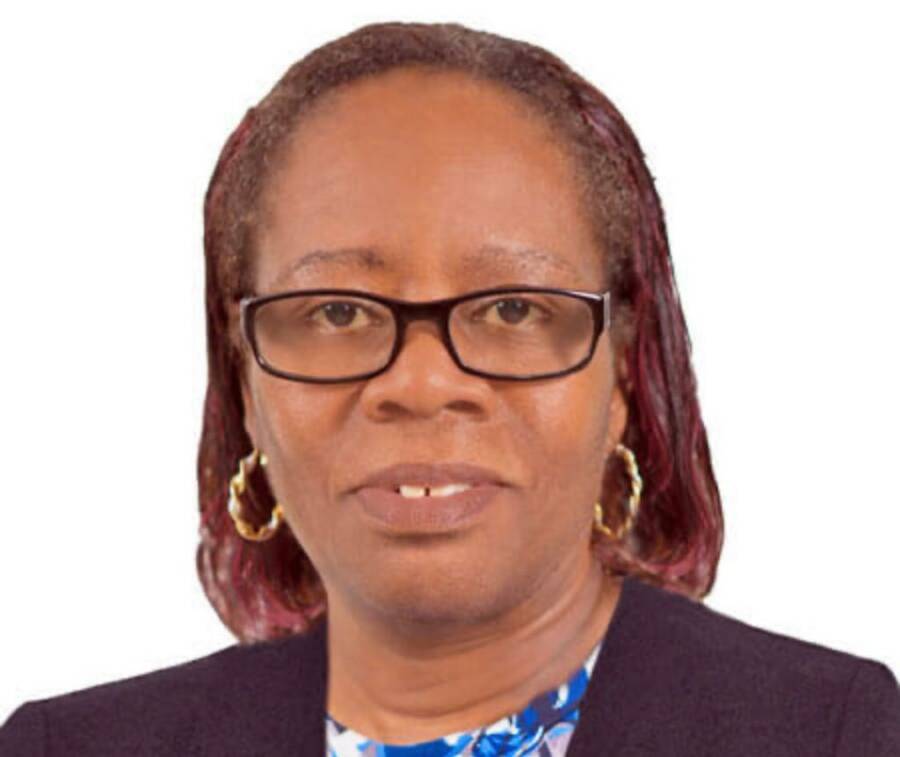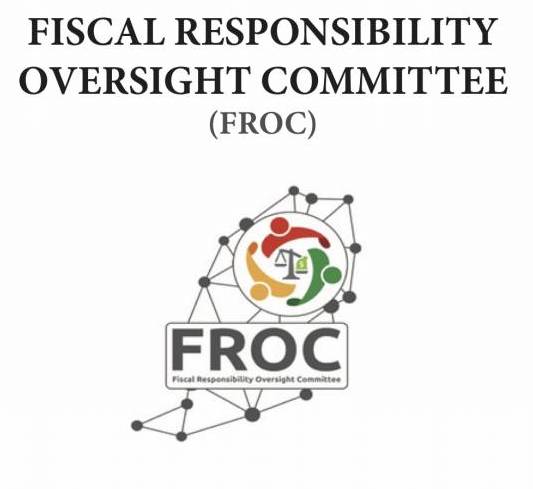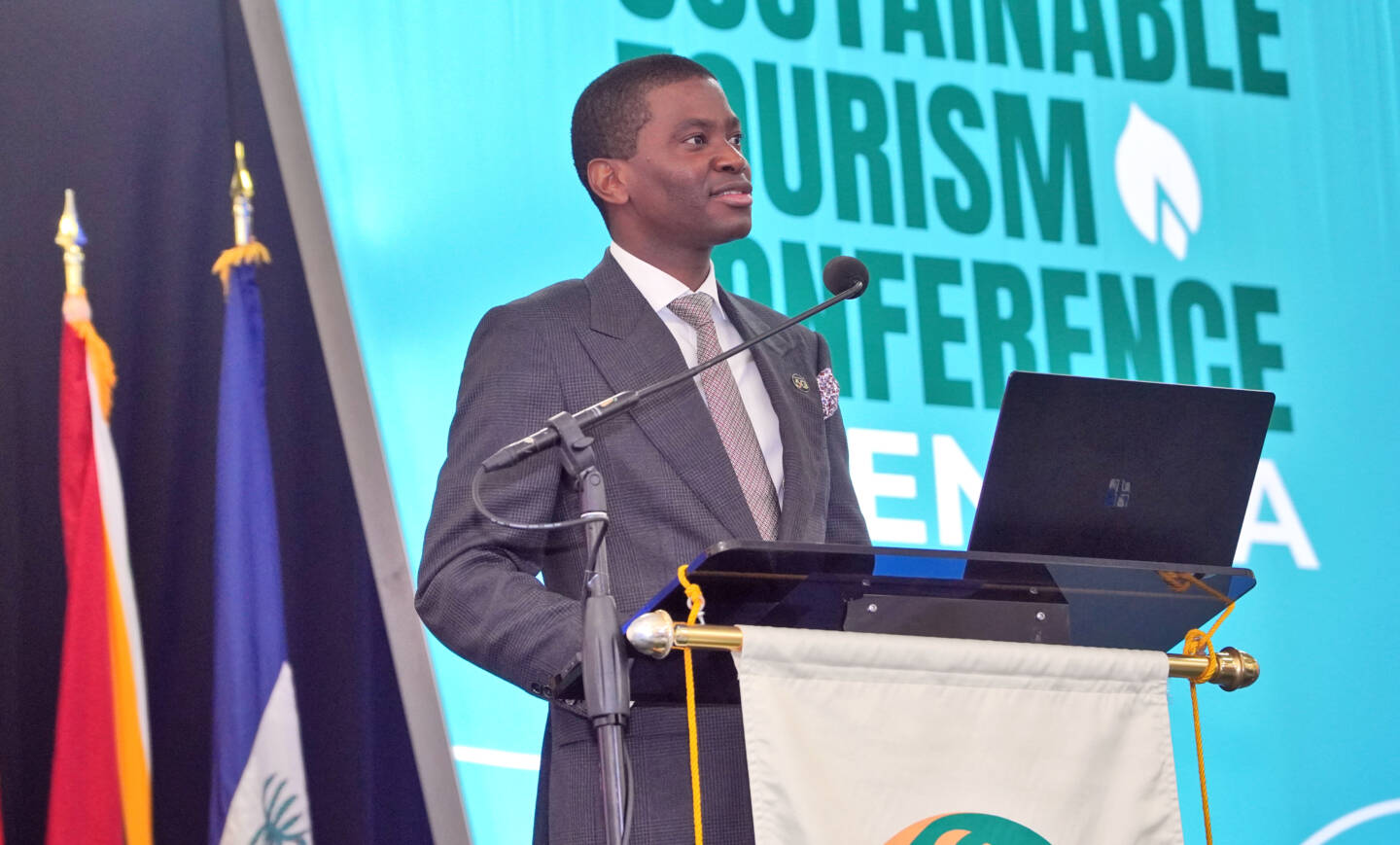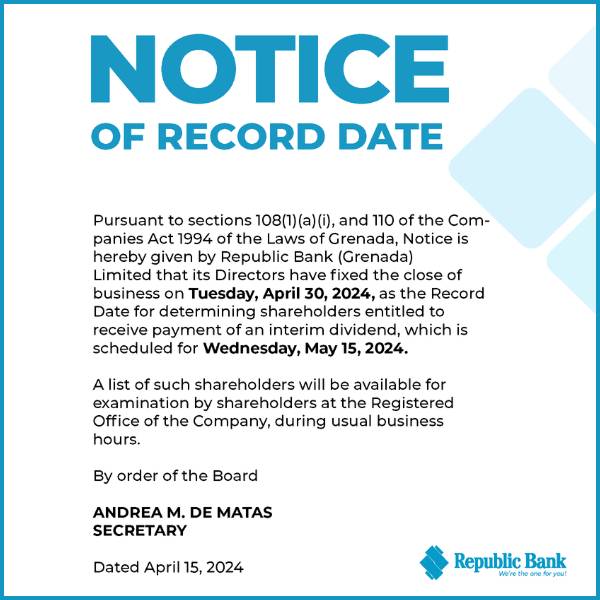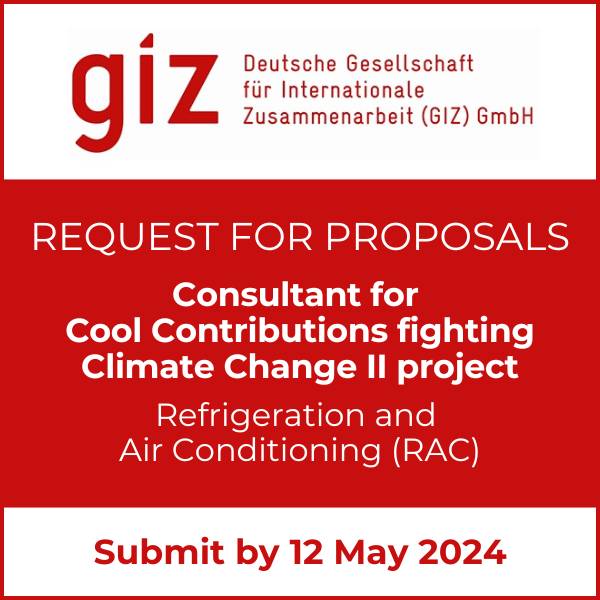“When people from diverse settings come together, great things happen.” This was the observation of the Director of the Commonwealth Foundation, Vijay Krishnarayan, as he made remarks at the conclusion of the National Policy Dialogue on Sustainable Energy, hosted by the Caribbean Consultative Working Group of the regional NGO Caribbean Policy Development Centre and its local affiliate, the Inter Agency Group of Development Organisations (IAGDO). The policy dialogue was held on Monday, 30 May, at the Grenada National Stadium.
Mr Krishnarayan noted that civil society organisations should have a say in how energy policy was made and noted the role of civil society organisations as a catalyst for bringing multiple stakeholders together. The importance of the involvement of civil society in policy dialogue on energy in the region was also articulated by Ms Niebert Blair, Project Officer responsible for Energy in the Caricom Secretariat and Mr Clyde Griffith, Executive Director of the Barbados Renewable Energy Association and first Energy Minister of Barbados.
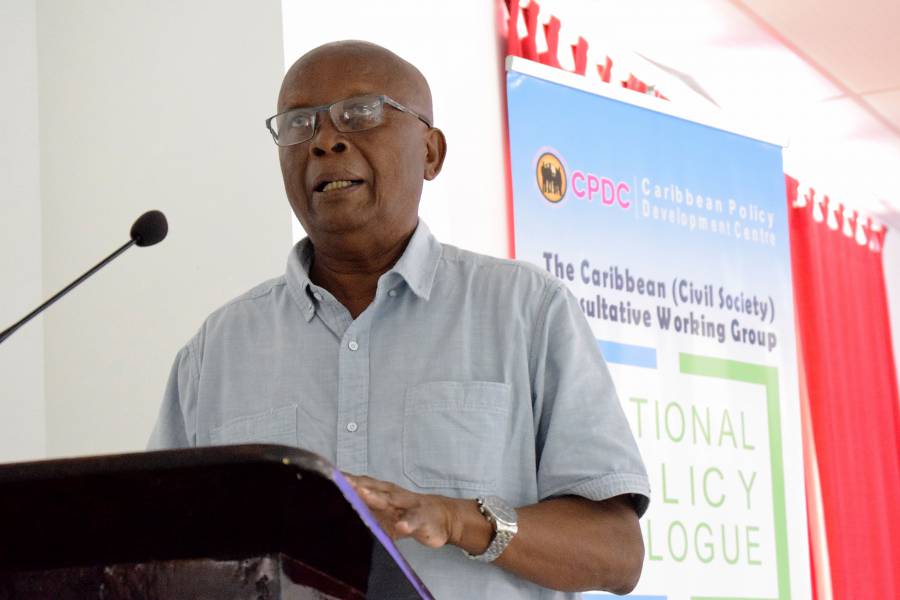
Ms Blair, who gave a presentation on Caricom’s Energy Efficiency and Energy Conservation Initiatives, introduced the concept of Integrated Resource Planning and noted that it was important that the people of the region dictate how their resources should be used to work for them. Mr Griffith shared his experience of promoting renewable energy in Barbados and the successes that his organization have had to date in raising public awareness and encouraging the adoption of solar systems. Mr Griffith noted that the region was a price taker in respect of the international oil prices.
However, the region possessed abundant natural resources of wind and solar energy. The question was how to get civil society to be part of the effort to secure the energy independence of the region. He noted that there was need to “relate to the people who made decisions about our lives” and also noted that “advocacy was part of the political decision-making system”. He challenged participants to get involved in advocacy and in raising awareness on the issue of energy. He said that his organization looked forward to collaboration and co-operation with other organisations in the region on the issue of renewable energy development.
A presentation was also made by Mr John Auguste, Senior Energy Officer in the Department of Energy on Grenada’s initiatives re energy efficiency and energy conservation. Ms Sandra Ferguson of the Inter Agency Group of Development Organisations gave a presentation on the findings of a rapid scan of the public-policy context undertaken by the Consultative Working Group in June 2015. Ms Shantal Munro-Knight, Executive Director of the Caribbean Policy Development Centre gave opening remarks and introduced the objectives of the dialogue. Dr Spencer Thomas, Chairman of the Sustainable Development Council served as moderator.
Some 75 persons representing a broad cross section of interests and stakeholders, civil society, private sectors, labour, academia and students — participated in the National Policy Dialogue on Sustainable Energy. The objectives of the policy dialogue were to:
- Discuss the status of policies, legislation and incentives which exists at the regional and national level relating to energy efficiency and conservation
- Discuss and agree on recommendations for improving, if necessary, existing policies, legislation and incentives
Among concerns and recommendations brought to the fore by participants were the following:
- Impact of the liberalization of the electricity sector in Grenada: Concern was expressed about the impact of the new Electricity Supply Act 2016 in Grenada on the prices of electricity for consumers who would not be able to invest in renewable energy systems.
- Costs and accessibility of energy: A key challenge was how to “democratize” the issue of energy without disenfranchising the poor given the high costs of the initial investment in renewable energy.
- Interconnection Policy: There was need for an equitable interconnection policy.
- Solarization of the Poor: Could the roofs of the poor and marginalized be solarized and be linked to the grid to that they became of producers of electricity for the company?
- Energy Security and Energy Independence: The discussion needed to move beyond energy efficiency and energy conservation to energy security and energy independence.
- Consumer Organisations: There was need for a consumer rights organization.
- Policy, Legislation and Incentives:
- Education and Technology: What was the government’s agenda re education and technology? The capacity of educational institutions to build capacity for the future has to be built.
- Access to Finance: Were financial institutions giving loans for energy efficient appliances?
- Transport: Is there a national transport policy that would encourage efficiency in the transport sector?
- Sustainable Energy: Did the government have a policy on sustainable energy?
- Audit: There is a need for an audit of the renewable energy initiatives already being implemented by individuals and businesses.
- Sustainable Development and Livelihoods: The focus for civil society must be on the poor and the links to sustainable development and livelihoods.
- Access to Justice for the Poor: Reference was made to other countries of the world where energy development further marginalized the poor, dislocated them and further deprived them of their livelihood resources.
- Environmental Impact: Energy development had enormous environmental footprint. E.g. the development of geo-thermal energy. People were urged to think about the protection of the heritage and beauty of Grenada in approaching the issue of energy development in Grenada. They were encouraged to become acquainted with international best practices. E.g There was no need to lose agricultural land to the creation solar farms. Roofs could be solarized.
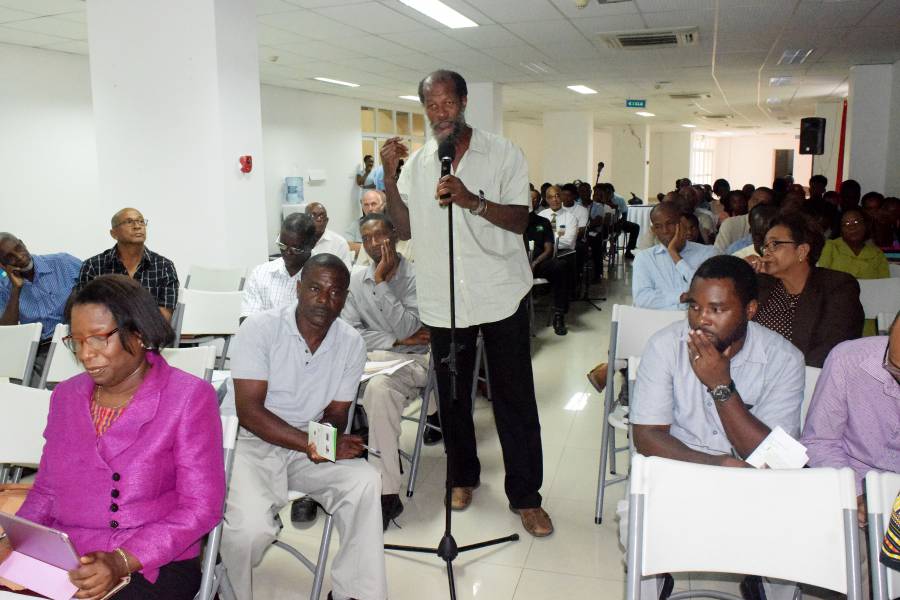
The National Policy Dialogue in Grenada was the fourth in a series of dialogues being held throughout the region by the Caribbean Consultative Working Group (CCWG) over the period 16 May to 1 June. The output of all of these dialogues will contribute to finalizing a regional civil society policy recommendation to be presented to Caricom and other regional institutions of governance later in the year.
The CCWG is a civil society mechanism established to enhance the participation of the regional civil society sector in policy development in the region. Its formation was facilitated by the Barbados-based NGO Caribbean Policy Development Centre (CPDC) through the support of the Commonwealth Foundation action Support to Caribbean Civil Society for Enhanced Participatory Governance. The Caribbean Policy Development Centre — a regional network of NGOs — currently serves as the CCWG Chair and Secretariat. Membership of the CCWG is comprised of both national and regional organisations, representing diverse sectors and based in 6 countries of the region — Guyana, Trinidad, Grenada, St Vincent & the Grenadines, St Lucia, Jamaica and Guyana. The Inter Agency Group of Development Organisations is a member of the CCWG.
